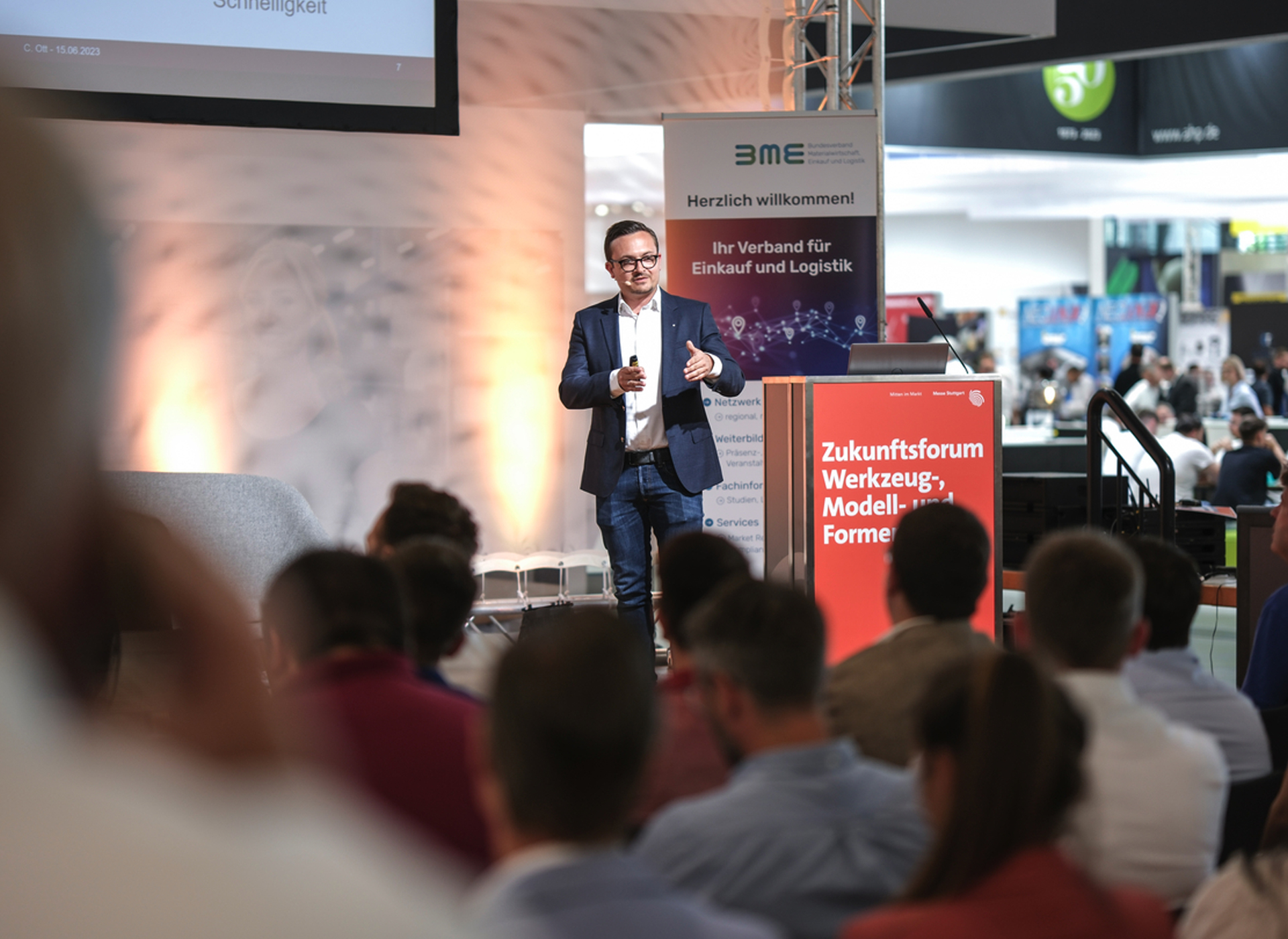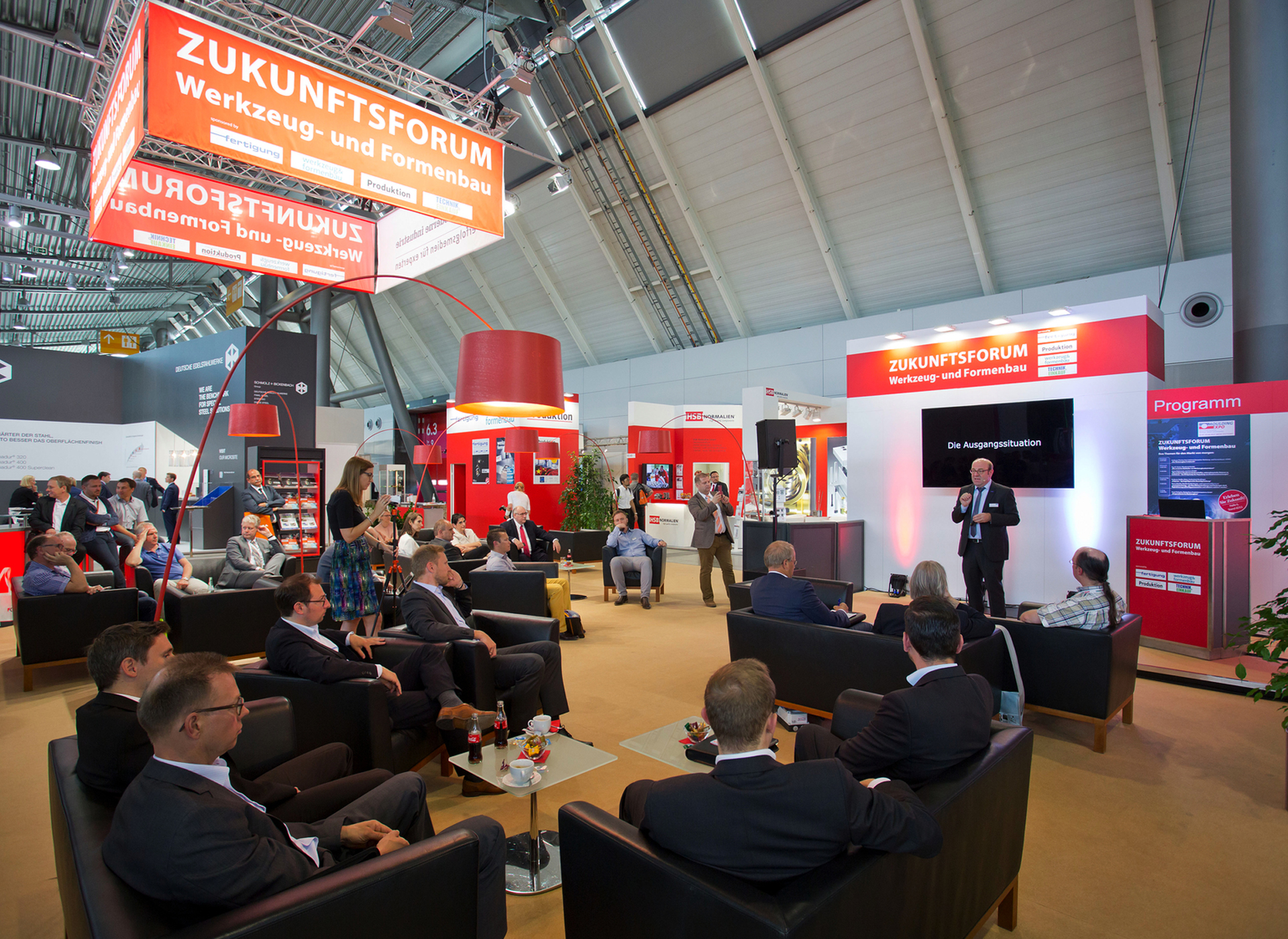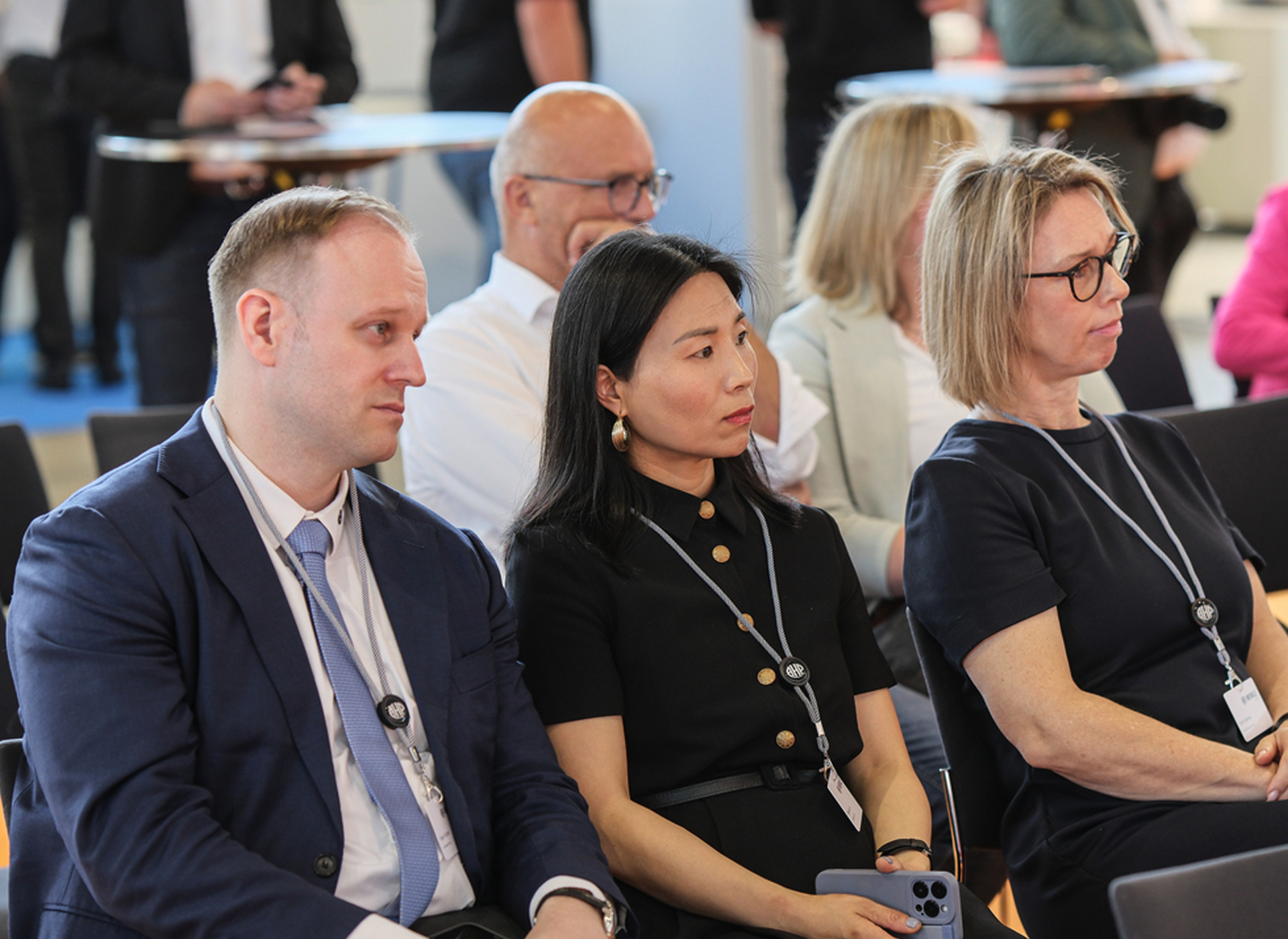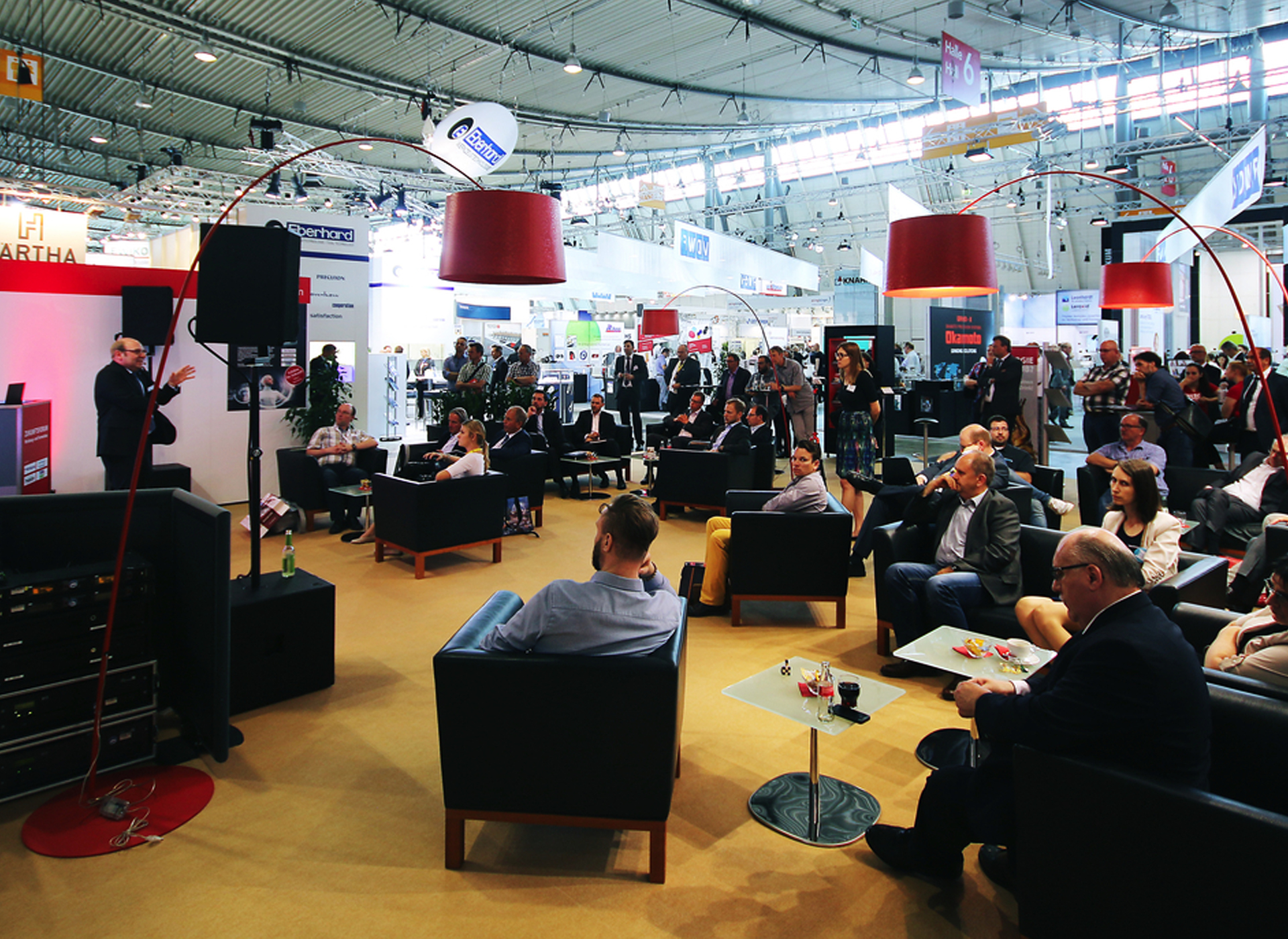Future Forum for Tool, Model and Mould Making

Lecture programme
13 June 2023
- 09:30 – Thought for the day – experts from "Marktspiegel Werkzeugbau"
- 10:15 – ISTMA Round Table: "The influence of sustainability on business models in tool making”
- 11:45 – Optimized process for the commissioning and acceptance of molding tools: New VDMA standard sheet 34195 provides assistance
- 12:30 – Lunch
- 13:00 – Make the documentation obligation your success factor – 7 principles
- 13:45 – Sustainability – but properly! Compendium of the Association of German Tool and Mould Makers (VDWF) for tool makers
- 14:30 – Automation in tool construction – conception and integration in production
- 15:15 – Impacts of material recycling in injection moulding with PP
Figures, data and specific action recommendations from and for the industry: the specialists from the expert team of the cooperative benchmark initiative will provide insights into the "inner workings" of the tool construction and mould making industry, describe strengths and weaknesses, and pass on action recommendations for improved competitiveness of companies.
Within the framework of the ISTMA Sustainability Initiative "Technology drives Sustainability", the podium participants will discuss the following question: How is growing awareness of sustainability among customers, financiers and politicians impacting the tool construction and mould making industry, and how can the industry achieve an optimum position?
Markus Heseding, German Engineering Federation (VDMA) & ISTMA Europe; Bob Williamson, ISTMA World; Rui Tocha; CENTIMFE, Prof. Wolfgang Boos, WBA. Moderation: Alfred Graf Zedtwitz
Within the framework of the FAIRNESS+ Initiative, experts in the German Engineering Federation (VDMA) are drawing up a standard for commissioning and acceptance of forming tools as a practical aid in order to make tool procurement as simple, quick and goal-oriented as possible for the benefit of everyone involved. When the VDMA draft standard is published, all interest groups are cordially invited to evaluate the contents and propose corrections and improvements to the editorial team. Information about the standard will be provided and its contents discussed exclusively at Moulding Expo.
Marco Schülken, German Engineering Federation (VDMA)
Just imagine your employees have a large number of lucrative orders in their work list, but production is slowing down – nothing is going out. Customers are already waiting and showing signs of impatience. You would be annoyed about this and would naturally want to remedy this situation as quickly as possible. If you now say "Sure, what else then", I would ask you the following question: "Why have you then accepted for years a situation in which your employees waste their valuable time in carrying out searches, doing additional work and attending superfluous meetings instead of impressing customers productively and with enthusiasm?" Active documentation is the key here.
Mario Schubert, ProcessGardening
The freely available VDWF compendium was prepared by the VDWF Sustainability Working Party. The objective is to provide companies in the industry with practical implementation aids in order to effectively integrate sustainability in their operational business. Making a contribution toward solving sustainability challenges is one of the responsibilities of companies. Due to economic considerations, small and medium-sized enterprises must also manage sustainability proactively. Whether climate change, conservation of resources or supply chains taking account of human rights, the related challenges are very quickly making their way into legislation or the requirements of customers and investors.
Wolfram Heger, Head of the VDWF Working Party “Sustainability/Future"
Automation is now standard in series production. In small-scale and one-off production which predominates in tool construction, automation can also be used to increase machine capacity and reduce employees' workload in demanding tasks. However, the organisational effort and the resulting costs are often too high while the wide range of automation solutions often presents companies with the challenge of finding automation systems which match their requirements. The keynote speech will provide an insight into how automation solutions can be meaningfully conceptualised and integrated in tool construction.
Marcel Prümmer, WBA
Recycling is becoming more important in the processing of plastic waste. Material recycling is important here in order to reduce production waste which occurs in companies. However, returning material waste to the production process increases the load on the molecular chains in plastic. This load leads to irreversible degradation. The effect of material recycling on mechanical, chemical, physical and optical changes in polypropylene will be described. The basic material is a plastic which is mostly used to make household products and thin-wall packaging. In each of the 25 examined cycles the plastic is injection moulded, the moulded parts are shredded and samples are taken.
Sebastian Limberg, Prof. Steffen Ritter, Reutlingen University
| Contact Richard Pergler Tel.: +49 179 398 33 60 E-Mail: redaktion(at)perglermedia.de |





